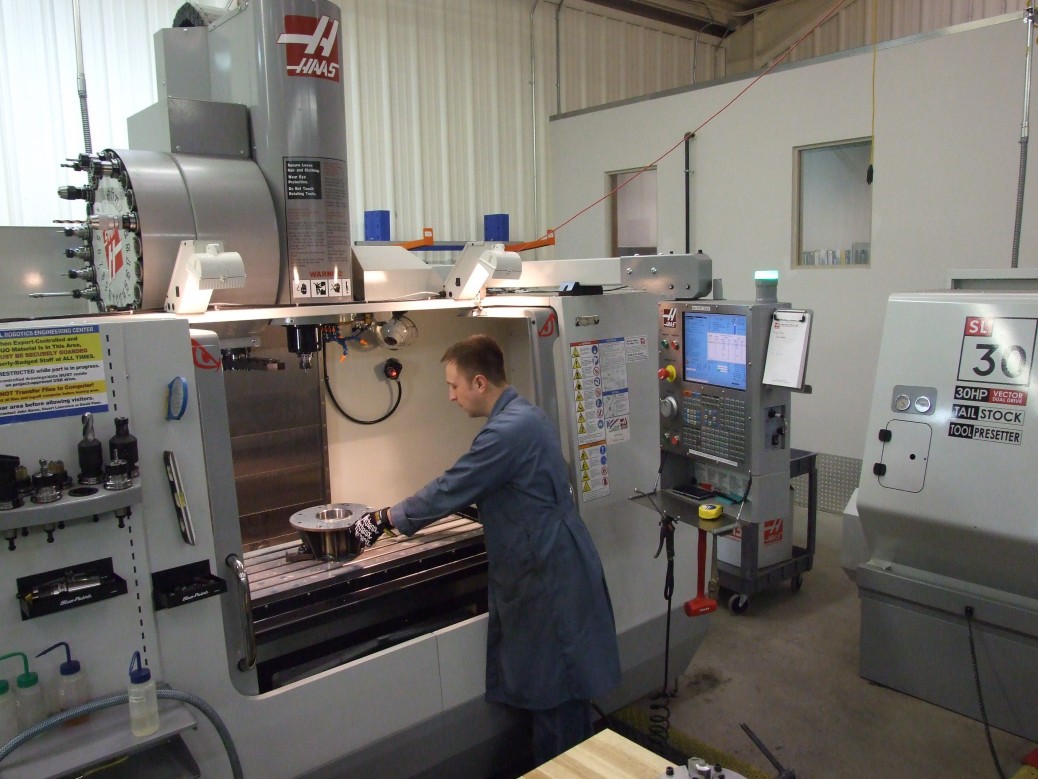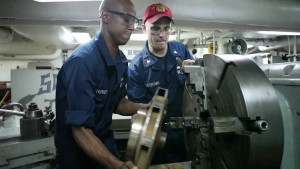
Do you remember your first day on the shop floor? Ogling over all the tools, machinery and controls; you started your career as a machinist. In many cases we get roped into this industry by family; maybe a parent, an uncle or even a close friend. Some of us were tinkerers from the start and knew we were destined for a life of building and creating things of value. It’s nice to reminisce, but what about the tough times? Remember the first job you botched? How much time, material and money was wasted? How did your boss react? We all love shop talk, but sometimes when the going gets rough a little bit of empathy can go a long way. What does it take to effectively manage a crew? What training and support do newbies need? How should mistakes be handled? Many shops take a sink or swim mentality, but this can be costly in the onset, especially if they “sink” a lot; whereas providing an experienced manufacturer as a short term mentor can eliminate that problem. In this blog series, we will explore these challenges and how you can continue to grow as a leader and reap the benefits of a more productive and successful workforce.
 It’s easy to look back on the days when we cut our teeth, learning the hard way, getting harsh reprimands from our boss, and think ‘I had to learn this way, this is how all machinists and shop workers should learn.’ But the truth is, there were days when we could have all used a little bit more encouragement, a little bit more guidance, a little bit more backup. If you were fortunate to have a mentor you will appreciate this concept right away. For those of us who had more of a boss than a leader at the helm we likely aren’t aware of the benefits of a true mentorship. Just because you didn’t have a mentor doesn’t mean you can’t become one.
It’s easy to look back on the days when we cut our teeth, learning the hard way, getting harsh reprimands from our boss, and think ‘I had to learn this way, this is how all machinists and shop workers should learn.’ But the truth is, there were days when we could have all used a little bit more encouragement, a little bit more guidance, a little bit more backup. If you were fortunate to have a mentor you will appreciate this concept right away. For those of us who had more of a boss than a leader at the helm we likely aren’t aware of the benefits of a true mentorship. Just because you didn’t have a mentor doesn’t mean you can’t become one.
What makes someone a mentor is their commitment to their mentee’s individual growth and success. One example is investing time in training the mentee on how to perform a task rather than just doing it in front of them and expecting them to retain each step. We all get stuck in that predicament where we have a tight deadline and doing it ourselves is quicker and more ‘efficient’ than taking the time to allow the rookie to be in the driver’s seat. But this is an investment in their future productivity and future performance. While this project may take longer than it would ordinarily, the next project may go much smoother and quicker as a result.
Another example of mentorship is being a good listener. Many times new hires have a fresh perspective and see things differently. This can be a huge asset to a mentor who engages their mentee in strategy and decision making. Now to be fair, newbies don’t know what they don’t know, so not every idea is going to be workable. However, by asking for their input, and listening to what they have to say, the mentor gains credibility and respect from the mentee, and the mentee feels a sense of value and will in turn be more committed to the job. This aspect of the relationship between mentor and mentee is critical and establishes the foundation for communication and collaboration.
 A third example of mentoring is how we handle mistakes. Mistakes happen all the time. The wrong tool was used, the wrong material, the wrong setting, the wrong speed… The list goes on and on. A mentor doesn’t look outward to identify why the mistake was made, they look inward. How could I have been clearer in the instructions I provided? How could this have been prevented? Is the shop organized enough? Did I provide enough training? That approach will manifest in a more receptive lesson for the mentee. By taking ownership and accountability for the supervisory role, the mentee will be more likely to heed advice and pay close attention to the corrective action. A mentor doesn’t overreact, a mentor remains calm, collected and clear-minded.
A third example of mentoring is how we handle mistakes. Mistakes happen all the time. The wrong tool was used, the wrong material, the wrong setting, the wrong speed… The list goes on and on. A mentor doesn’t look outward to identify why the mistake was made, they look inward. How could I have been clearer in the instructions I provided? How could this have been prevented? Is the shop organized enough? Did I provide enough training? That approach will manifest in a more receptive lesson for the mentee. By taking ownership and accountability for the supervisory role, the mentee will be more likely to heed advice and pay close attention to the corrective action. A mentor doesn’t overreact, a mentor remains calm, collected and clear-minded.
If you are in a leadership position, or aspire to be, thinking like a mentor will help you both on the shop floor and outside of work. The trick is to remember what it was like on Day one, in year one, on the day you made your biggest mistake. Put yourself in the shoes of the person you are mentoring, and you will be a more effective mentor.



Add comment
Connect with: Log in
There are no comments